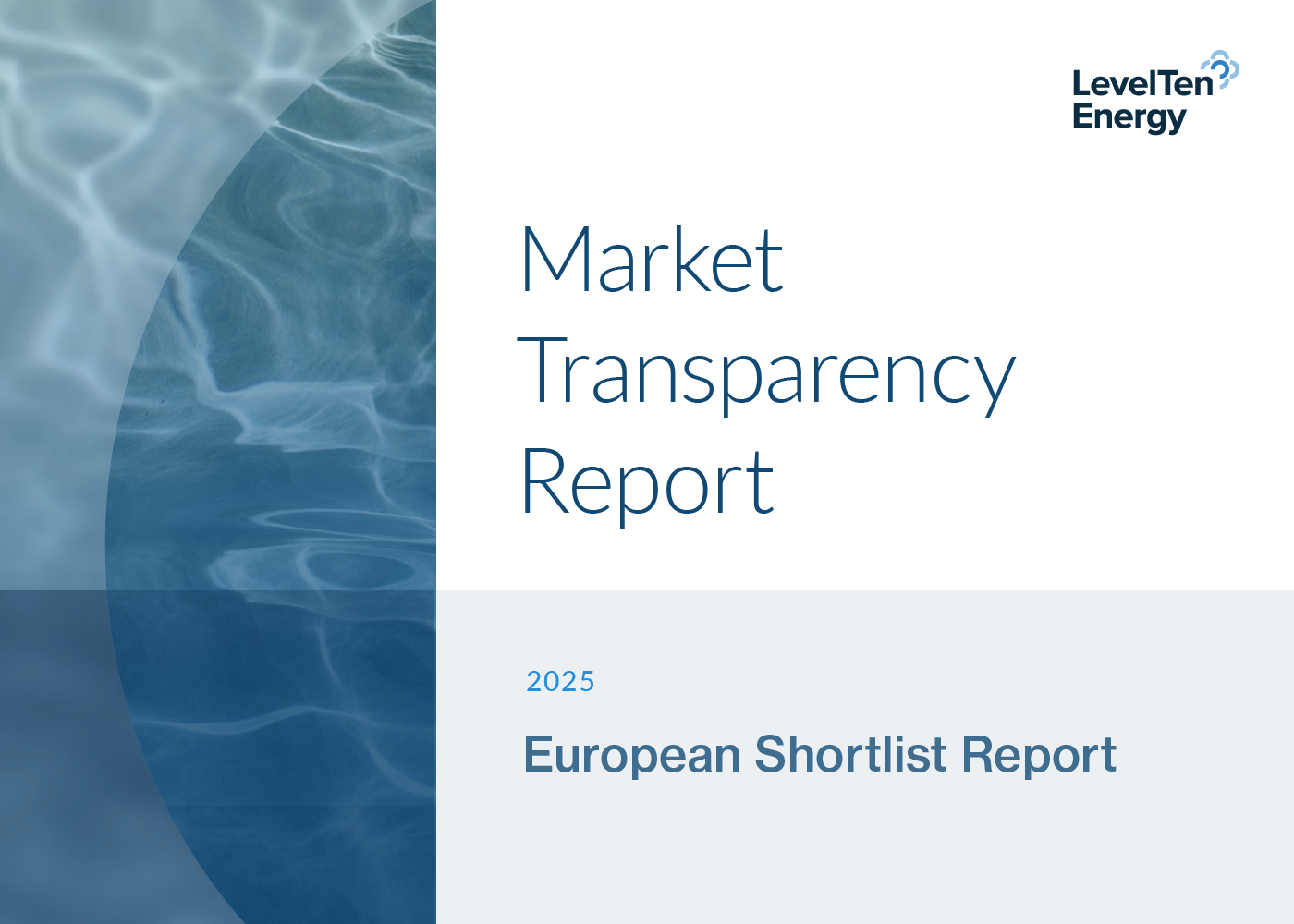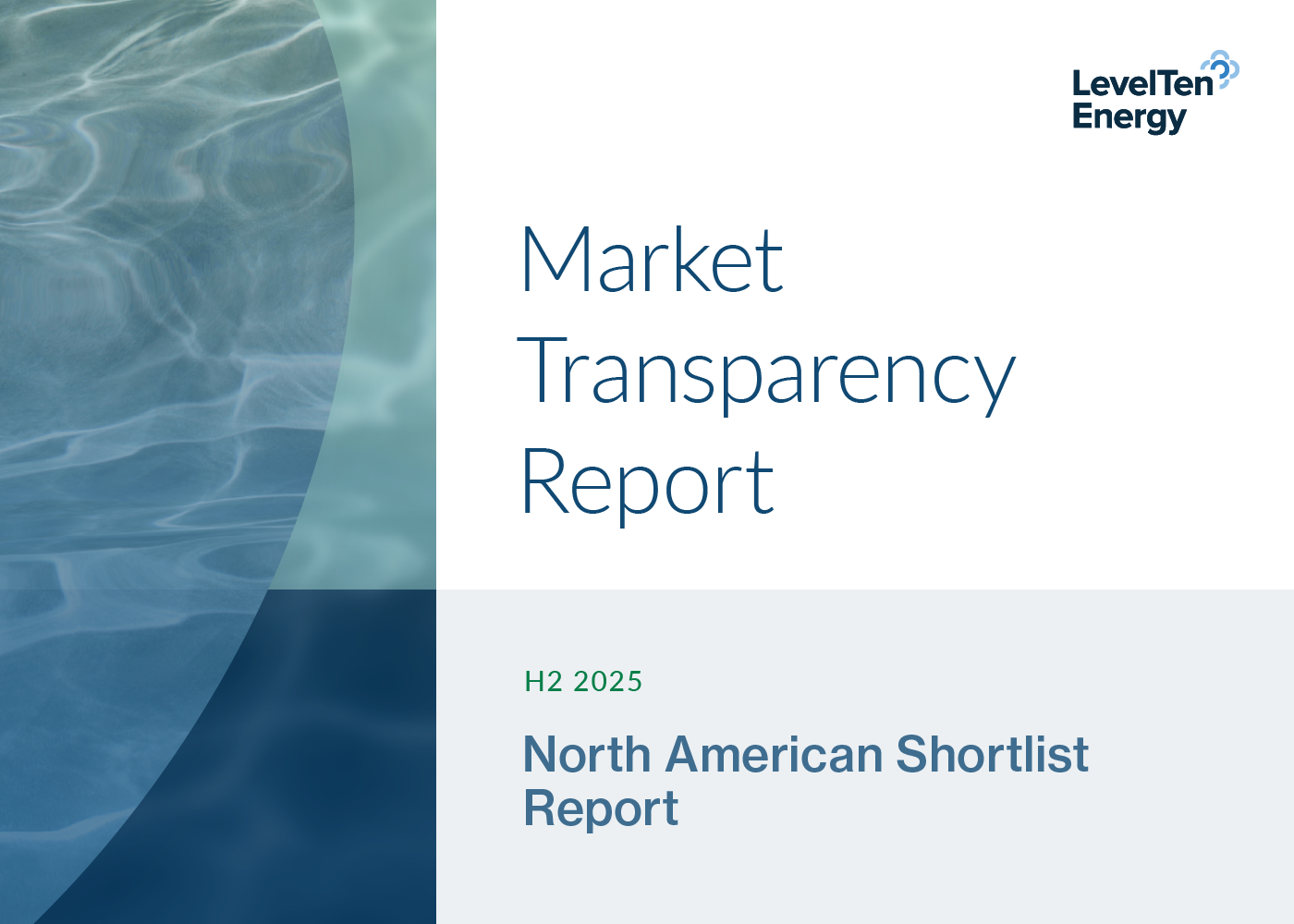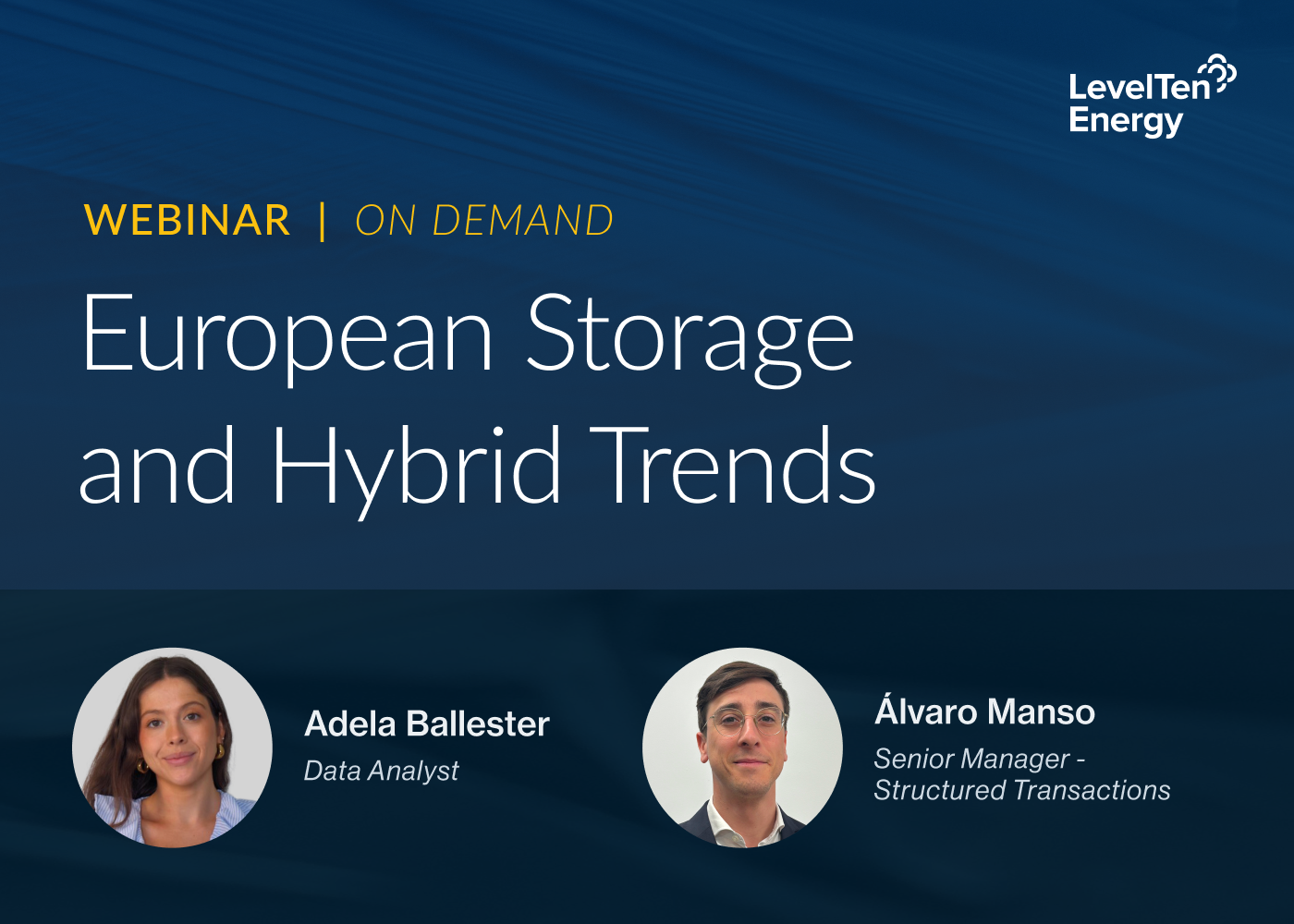Wireframe Ventures is a venture capital firm that backs founders attacking high-impact problems in large industries. The firm participated in LevelTen Energy's Series A investment, and its General Partners have led early-stage investments in a number of technology companies, including Palantir, Renew Financial, Assurex and DNAnexus. We caught up with Wireframe co-founder and Managing Partner, Paul Straub, to get his view on the role of venture capital in fighting climate change.
Wireframe Ventures specializes in backing companies that are tackling massive challenges; what are some of the biggest challenges that you see today?
Climate change is obviously a massive, overarching challenge that is already impacting nearly every corner of society and life on the planet - from human health to food systems to real estate to supply chains. Many companies we fund, like LevelTen, are helping us move towards a low carbon economy. But we see significant opportunities to tackle a broad range of other serious challenges. For example, technology advancements across synthetic biology, genomics, data analytics and computation are delivering exciting new solutions for better and more personalized healthcare.
Massive industries that the world relies on every day - manufacturing, agriculture, healthcare, energy, transportation - are all being transformed with technology as the catalyst. But this creates its own set of challenges because technology-driven change is pushing up against the boundaries of institutions, regulations and societal norms, and even human adaptability. We love cutting-edge technology, but it's rarely enough on its own. We look for teams who understand the unique challenges of these market, how to overcome inherent barriers to innovation, and who focus on building solutions that can be positive for society.
More institutional investors are starting to look closely at a company's sustainability strategy before investing; do you think more venture capital firms will start to do the same?
Investors are increasingly factoring sustainability into their decisions, and it's about time. Sometimes they're looking through a risk lens, such as measuring climate exposure or stranded asset risk. Moody's is actually working to score companies on carbon transition risk. But some investors now recognize that companies embracing sustainability have a strategic advantage that should yield more efficient business operations and better economic performance. These companies are better positioned to meet growing customer demand for sustainability in their purchasing decisions. Finally, companies who embed these values in their culture have a real leg up in recruiting, particularly in attracting younger workers who prioritize working on things that matter.
As an aside, we funded a company called OpenInvest, which is powering the sustainable investing movement by providing advisors, institutions and retail investors a far better solution for values-based investing vs. any current ETF or mutual fund product.
At Wireframe, we focus on a founder's purpose as part of our initial investment decision. In many cases sustainability is embedded in the company DNA and the product from the outset. We see more and more talented founders choosing to spend their time and energy tackling these problems. That fact alone will be the most significant factor in driving more investment in sustainability, since VCs will always follow the lead of great founders who prove they can build massively successful companies around these values.
What role does, or should, venture capital play as a force for change?
By definition any venture investor is seeking to capitalize on some discontinuity or step-function of change, which is usually technology-driven. But the vision for that change should really come from the founding team, not the investors. We provide founders with high-risk capital as a catalyst and we earn their trust by advising and supporting them along the journey.
Relative to the scale of market opportunity here, we still see a shortage of institutional seed-stage investors committed to themes like sustainability and human health. And that early-stage risk capital is perhaps the most important part of the capital stack in terms of enabling change. By the time a company reaches a certain threshold of commercial momentum, financial metrics alone will serve to attract later stage investment, irrespective of theme.
What types of cleantech companies are catching VC interest today?
Honestly, "cleantech" is not catching any interest from most VCs - largely because that label remains tied to a bubble that attracted and washed out a ton of capital a decade ago. However, founders and investors learned a great deal from those ashes and there is a bit of a renaissance occurring around broader themes of sustainability, resource efficiency and energy technology. In this process, a few important underlying distinctions have emerged.
First, early "cleantech" investments were highly concentrated in new fuel or power generation technologies trying to compete with commodities on price. These companies often required massive amounts of project capital to scale up or build manufacturing plants in advance of true commercial validation. Today, investors are looking at a much broader spectrum of compelling market opportunities in sustainability across areas like transportation, food and agriculture, supply chain or manufacturing.
Second, many of those seeds planted a decade ago - solar, electric vehicles, energy storage, smart grid - have quietly (and much more quickly than most expected) become economically viable and begun moving into the mainstream. This new renewable, distributed and flexible energy system represents a far more compelling foundation upon which to build the next generation of startups.
What was it about LevelTen Energy that initially caught your eye?
Bryce and the team had a unique insight into a market that really wasn't working because it was only accessible to a few large companies, even though it has the potential to transform the renewable energy industry. Bryce really stood out as a founder who deeply understood these challenges from personal experience and is obsessed with making it easy for any company to buy renewables. We were also primed for the opportunity. We had been active in residential and commercial solar, but were always struck by how difficult and complex it was for most corporates to participate. When we started working with Bryce, it was clear that LevelTen's vision could align everyone's interests and that unlocked the puzzle for us.
Climate change headlines can be full of doom and gloom; what gives you hope?
My nature is to be optimistic. I think it's a far better disposition to hold because it empowers me to try and make a difference rather than throw in the towel. Nonetheless, recent headlines are jarring, and finally beginning to capture the potential scale and dire consequences of climate change. What gives me hope is that I don't believe we need technology miracles to solve this problem. We can have a huge impact through far more rapid deployment of existing and "near ready" technologies (within 5-10 years). And the most important source of my own hope is the growing number of talented, creative, and passionate founders we meet who are committed to joining us on the steep climb ahead.
For those future founders out there - what are some of the critical components you look for in potential future investments?
As my partner Harsh likes to say, a good venture business should ultimately have the potential for "high growth, high margin, and high terminal value." So we look for founders who understand what that means and are committed to building that type of company. But we also look hard at "founder-market fit" - how authentic is this founder to this problem, how committed are they to solving it and why are they uniquely qualified to do so. We saw exactly these elements in Bryce and LevelTen. The other key element we look for is Product. Can this team articulate, design and build a world class product, not just theorize it.






